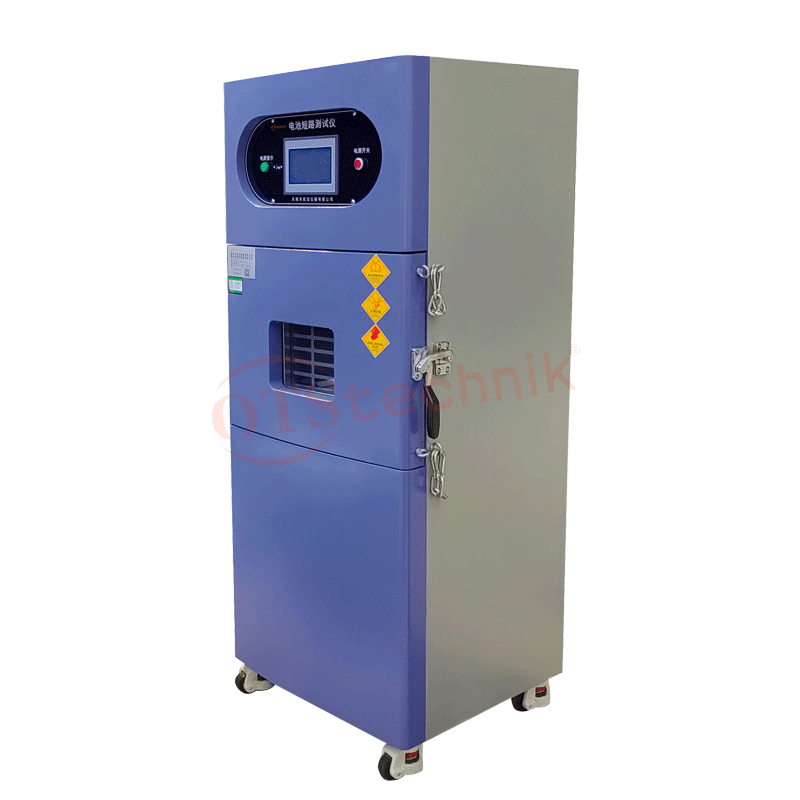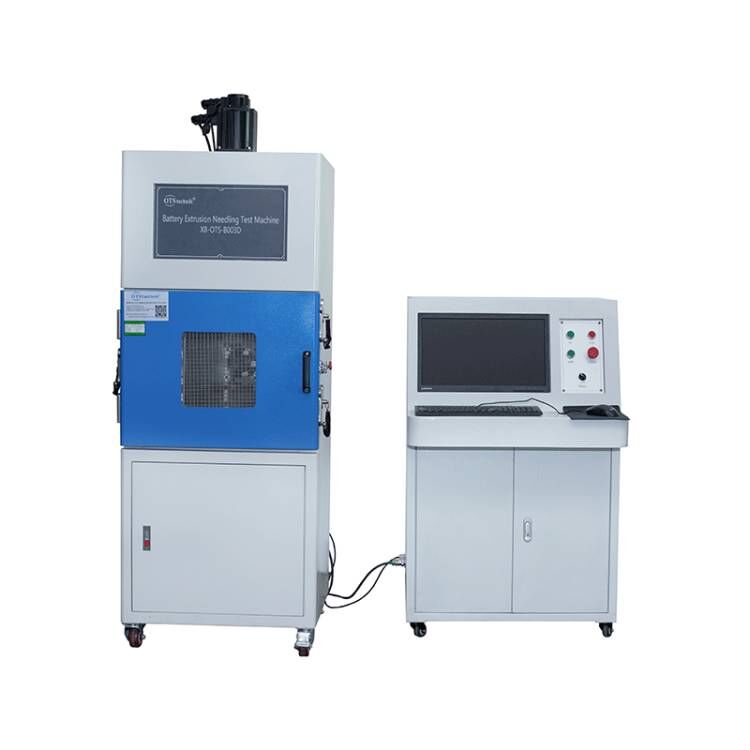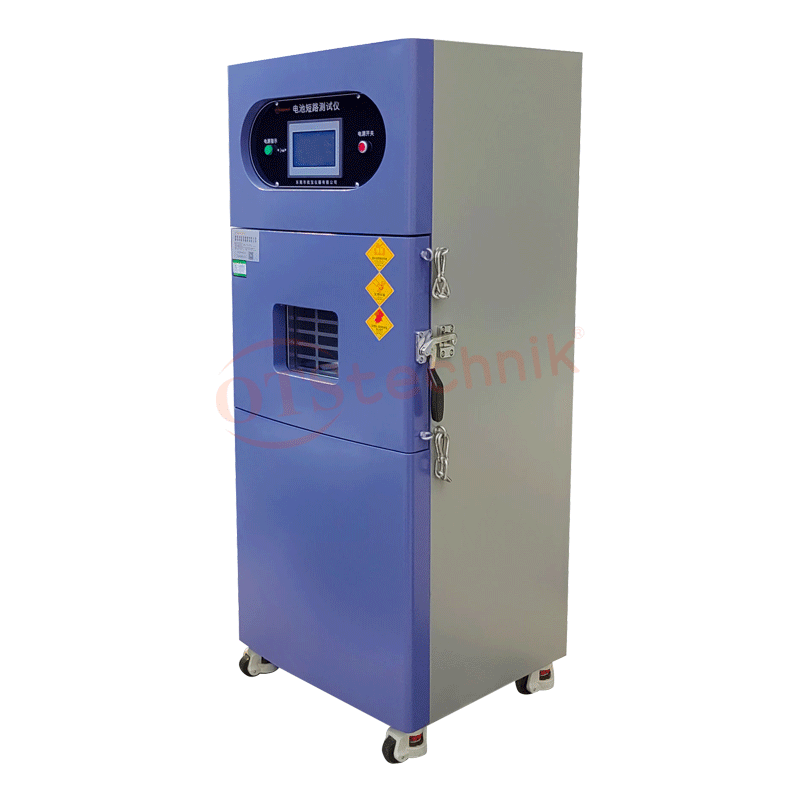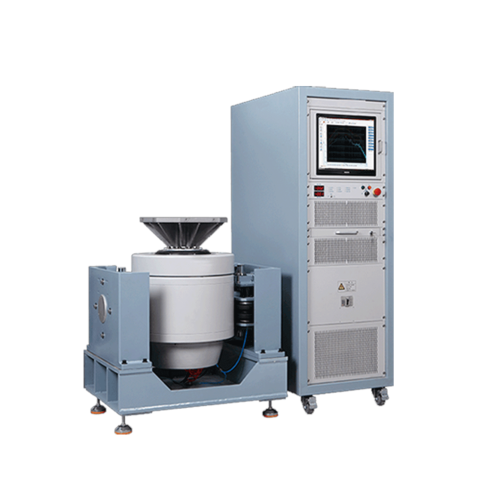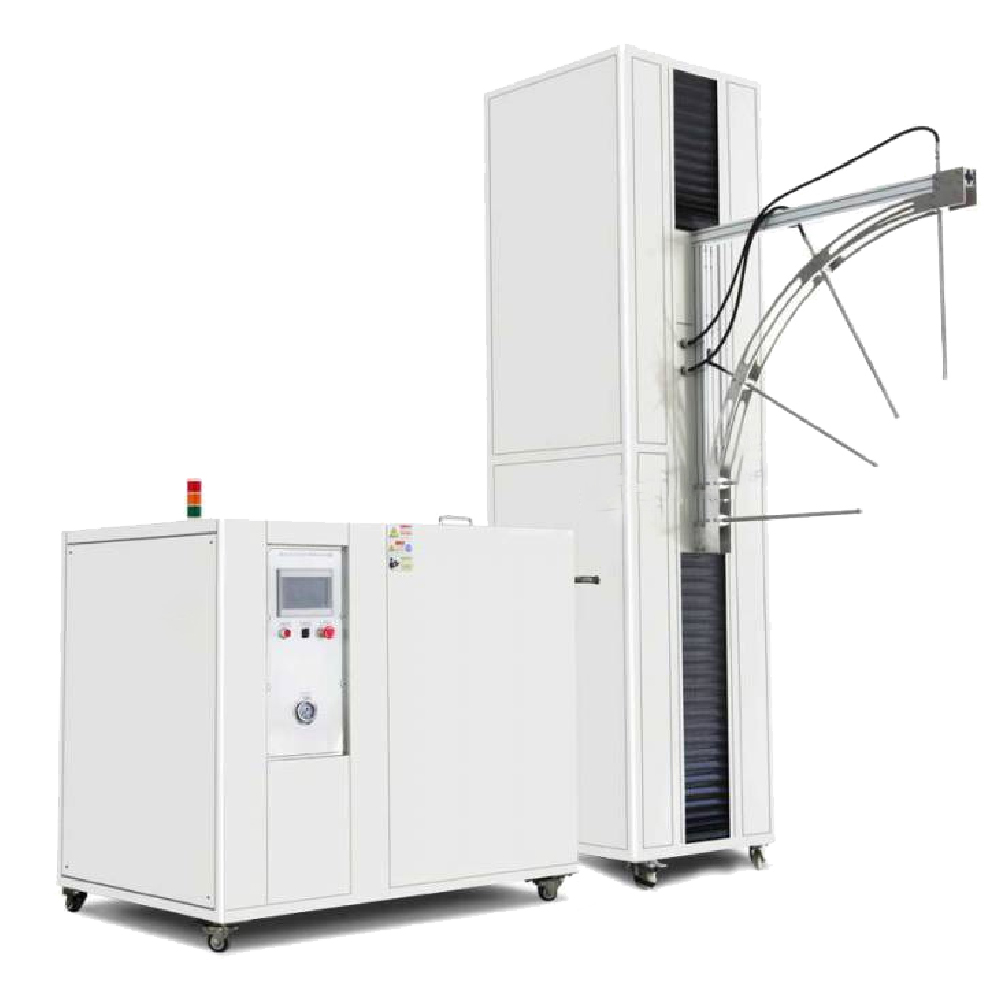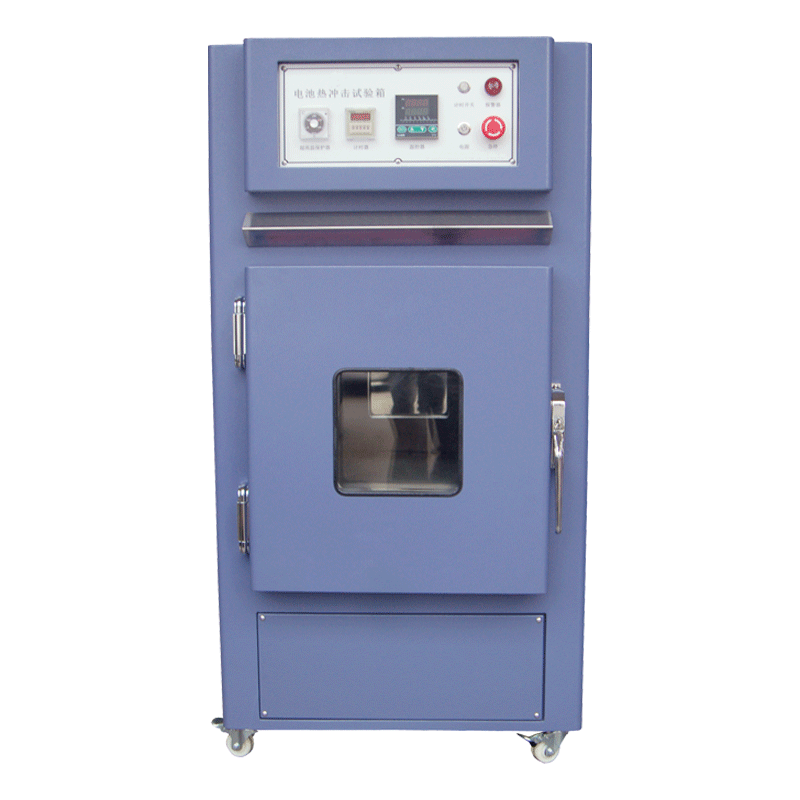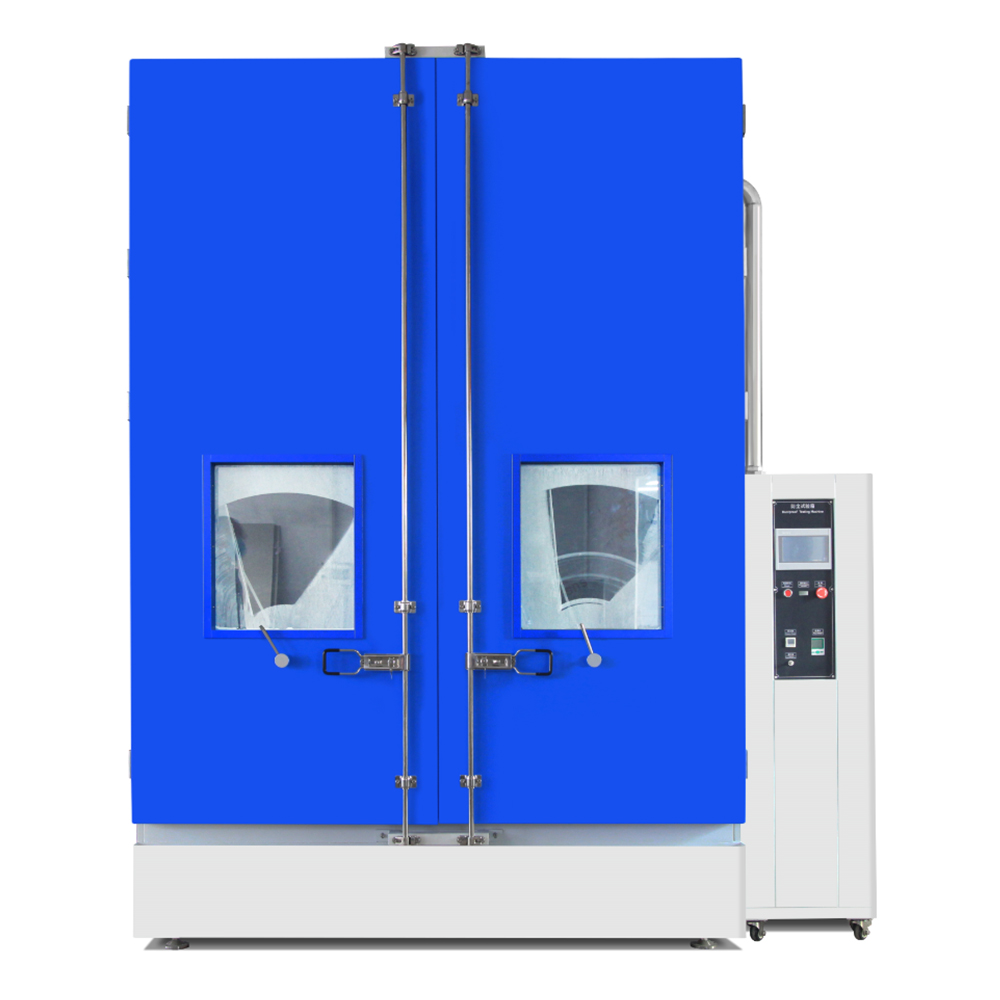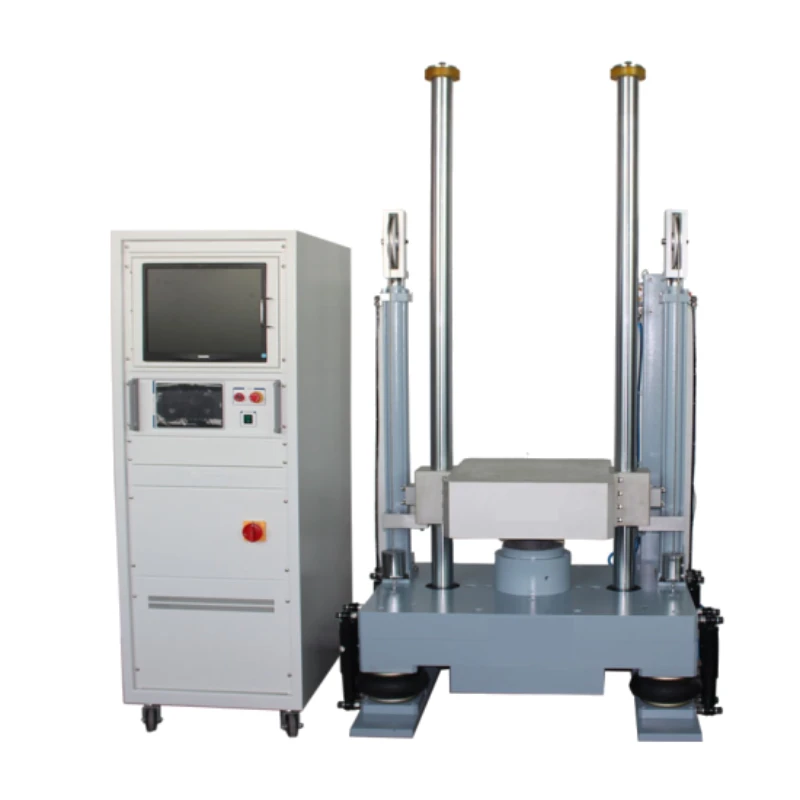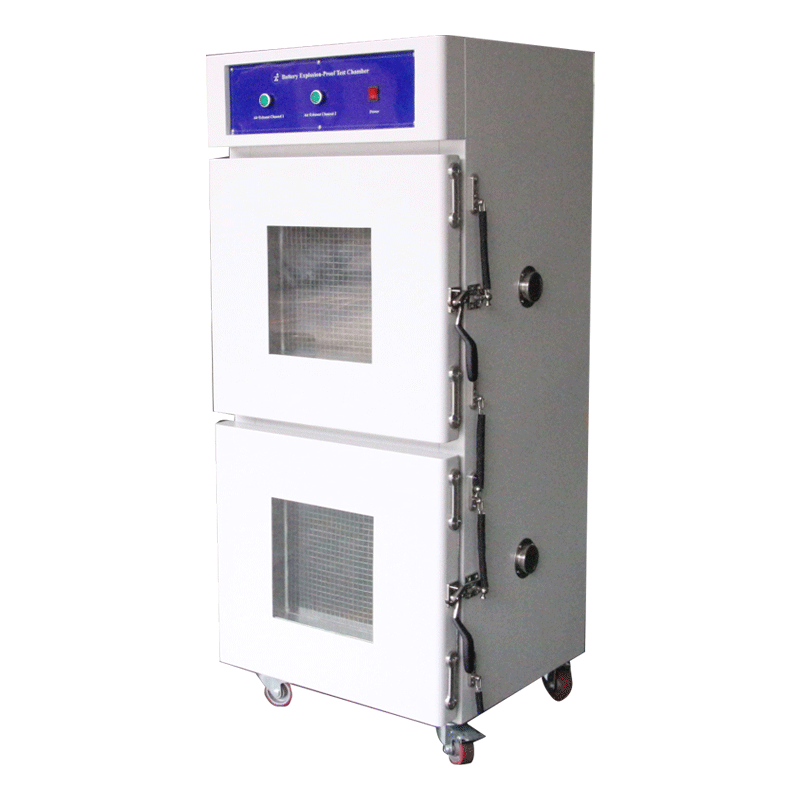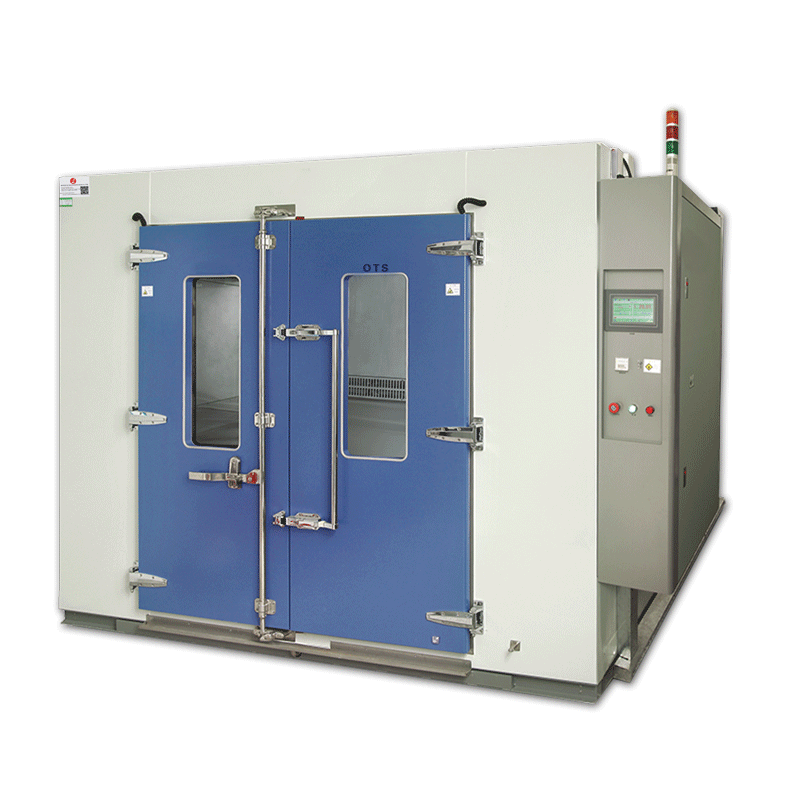Test Standard of Battery Shock Testing Machine
1. GB 31241-2014 Safety Requirements for Lithium-ion batteries and battery Packs for Portable electronic Products
2. UL 1642:2012 Lithium Battery Standard
3. UL 2054:2012 Household and Commercial Battery Packs
4. IEC 62281:2004 Lithium Primary Batteries and Storage Batteries in Transport Safety Requirements
5. IEC 60086:2007 Primary Batteries – Part 4 Safety Requirements for Lithium Batteries
6. UN38.3
Product Specification
| MODEL | XB-OTS-656 |
|---|---|
| Falling ball weight | 9.1kg±0.46Kg(20±1 Pounds)or10 Kg |
| Falling height | 610~1000mm(Digital display can be set) |
| Internal material | SUS#304 stainless steel plate |
| External material | Cold rolled steel baking finish |
| Power mode | Electric, fall free |
| Upper and lower impact surfaces | Steel plates |
| Power supply | 1∮,AC220V,ф5A |
| Machine weight | About 105Kg |
| Using Circumstance | 0 ~ 30° C |
| Crossing Bar Diameter | 15.8 mm(Place on central position in cross direction and the heavy bar and steel bar is parallel to battery bottom) |
| Chamber Gate | Single Door, Viewing Window, cold-rolled door lock |
| Air Vent | 150mm, on the top of the back of the chamber |
Battery Shock Test Machine Features
- This battery impact tester adopts a double rail structure. Sudden power failure can protect the testing machine.
- The impact weight can be easily replaced, installed, and disassembled. It provides an excellent solution for handling errors caused by secondary shocks. At the same time, the test accuracy is improved.
- There is a metal fire shield attached to the wire. Burning is thus prevented during the test.
- The lighting system is designed to observe the internal testing process.
- Height digital display, controllable height 25-1000mm.
- The wire hole allows testing of the internal temperature or air pressure. Exhaust vents with blowers allow exhaust to escape.
- The control system adopts an independent control cabinet 1-2 meters from the laboratory. This reduces noise and improves safety.
Battery Shock Tester Applications
Our Battery Shock Test Machine is mainly used to simulate the mechanical shock that batteries are subjected to during transportation, use, or harsh environments. This equipment can test the structural integrity and safety of batteries. It is widely used in the automotive, aerospace, power tools, and consumer electronics fields. After the test is completed, you can ensure that the battery is stable and safe when subjected to strong vibration or shock. This type of test can help battery manufacturers evaluate the performance of batteries under extreme conditions and reduce potential safety hazards.
